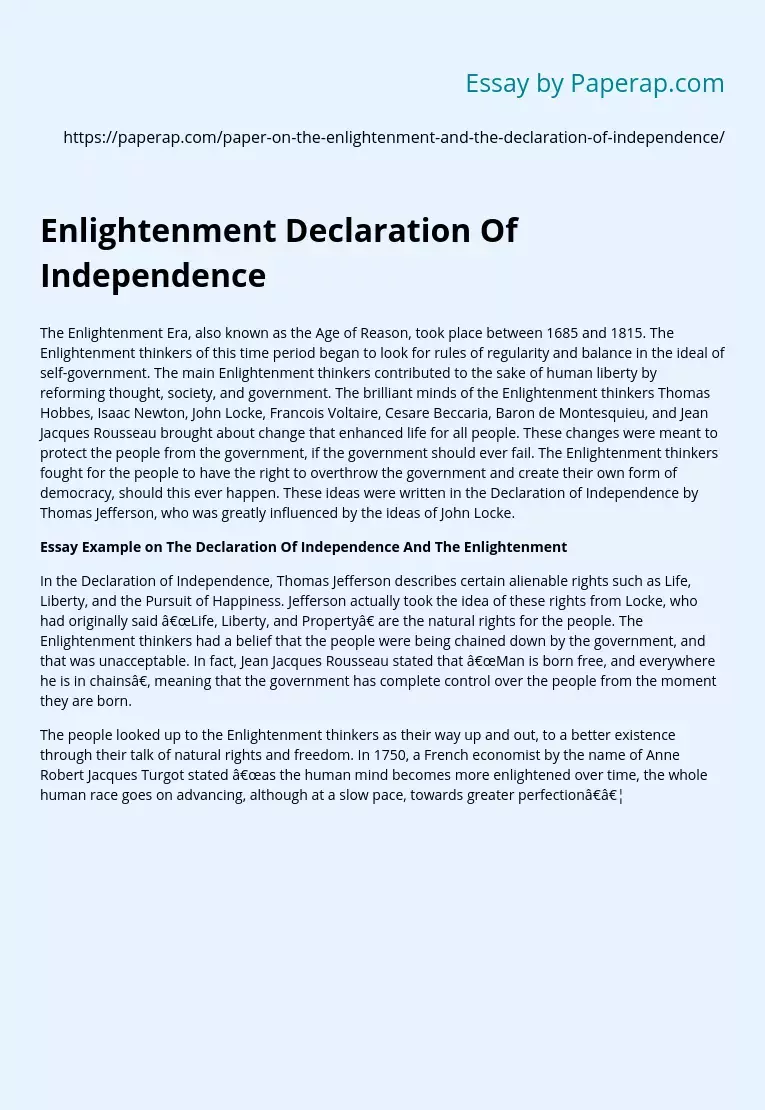Enlightenment Declaration Of Independence
The Enlightenment Era, also known as the Age of Reason, took place between 1685 and 1815. The Enlightenment thinkers of this time period began to look for rules of regularity and balance in the ideal of self-government. The main Enlightenment thinkers contributed to the sake of human liberty by reforming thought, society, and government. The brilliant minds of the Enlightenment thinkers Thomas Hobbes, Isaac Newton, John Locke, Francois Voltaire, Cesare Beccaria, Baron de Montesquieu, and Jean Jacques Rousseau brought about change that enhanced life for all people.
These changes were meant to protect the people from the government, if the government should ever fail. The Enlightenment thinkers fought for the people to have the right to overthrow the government and create their own form of democracy, should this ever happen. These ideas were written in the Declaration of Independence by Thomas Jefferson, who was greatly influenced by the ideas of John Locke.
Essay Example on The Declaration Of Independence And The Enlightenment
In the Declaration of Independence, Thomas Jefferson describes certain alienable rights such as Life, Liberty, and the Pursuit of Happiness.
Jefferson actually took the idea of these rights from Locke, who had originally said “Life, Liberty, and Property” are the natural rights for the people. The Enlightenment thinkers had a belief that the people were being chained down by the government, and that was unacceptable. In fact, Jean Jacques Rousseau stated that “Man is born free, and everywhere he is in chains”, meaning that the government has complete control over the people from the moment they are born.
The people looked up to the Enlightenment thinkers as their way up and out, to a better existence through their talk of natural rights and freedom. In 1750, a French economist by the name of Anne Robert Jacques Turgot stated “as the human mind becomes more enlightened over time, the whole human race goes on advancing, although at a slow pace, towards greater perfection”…
Enlightenment Declaration Of Independence. (2019, Nov 27). Retrieved from https://paperap.com/paper-on-the-enlightenment-and-the-declaration-of-independence/

